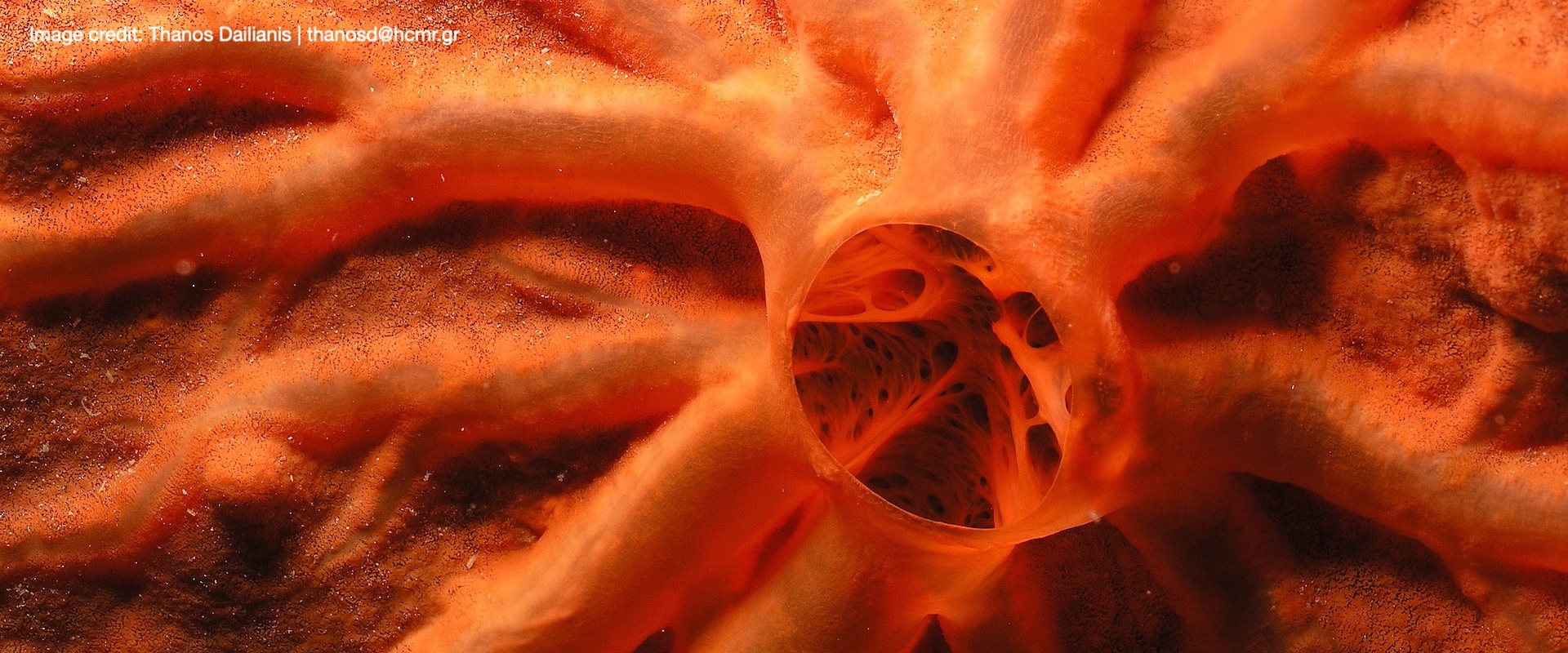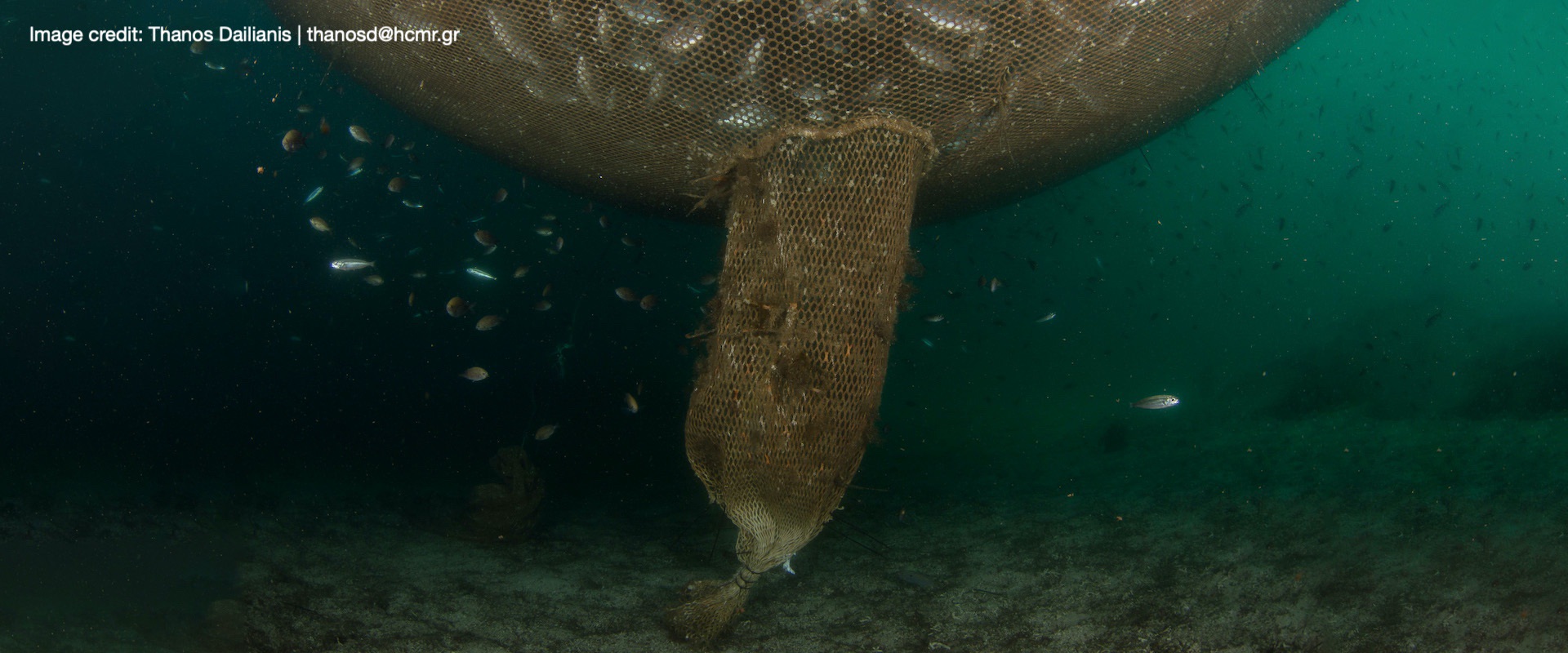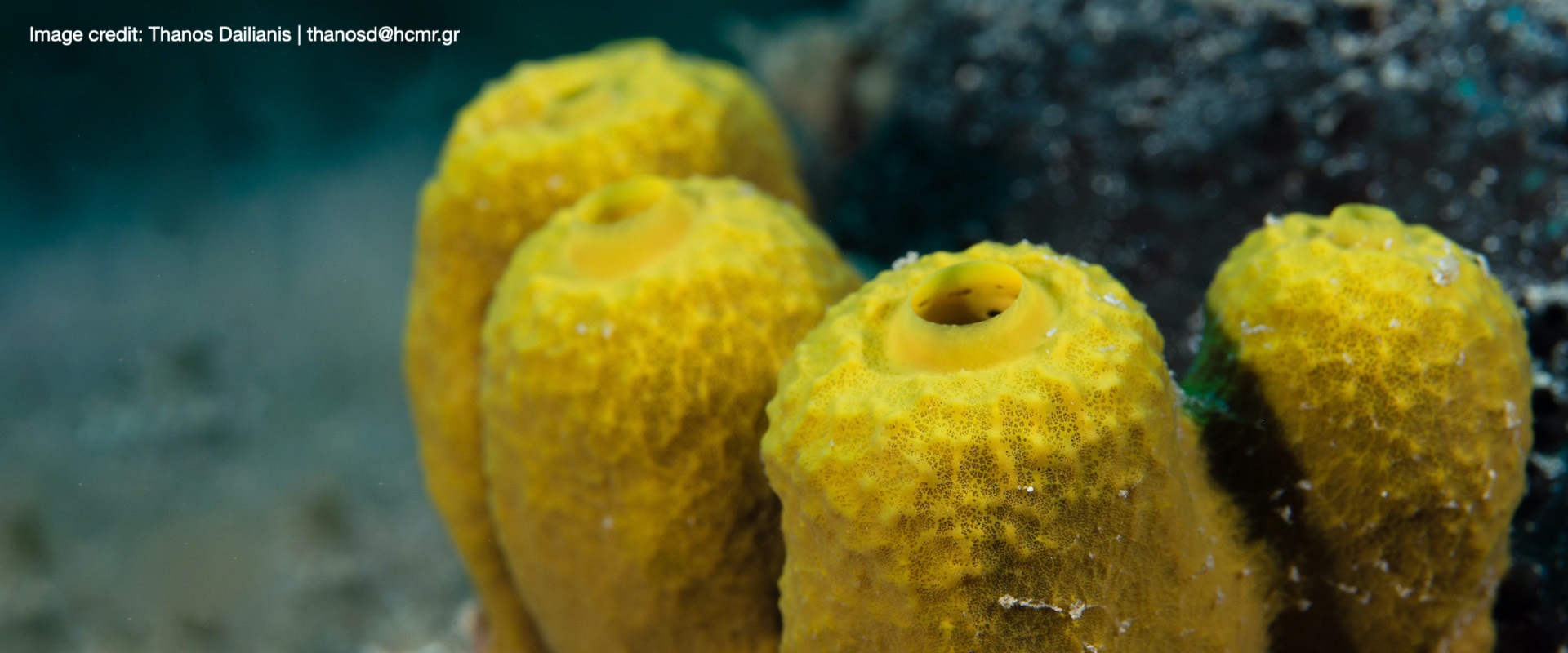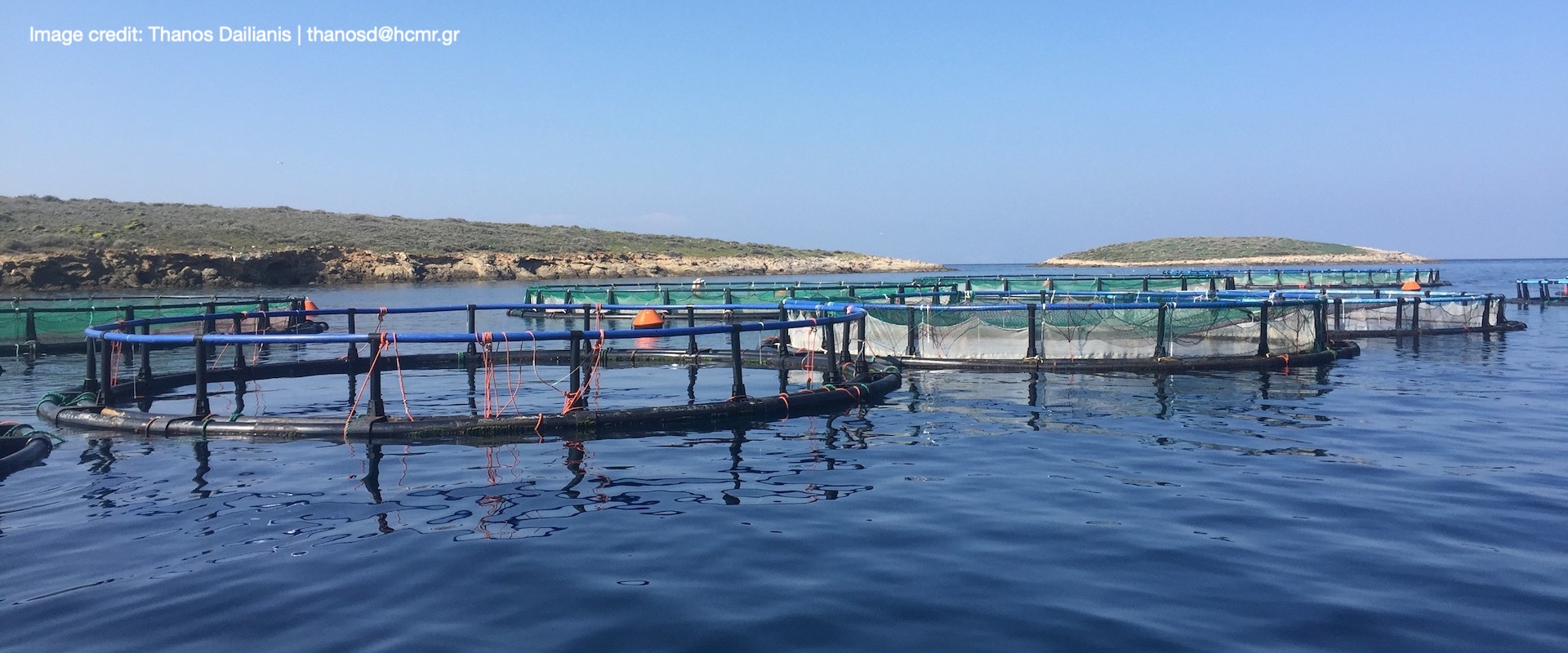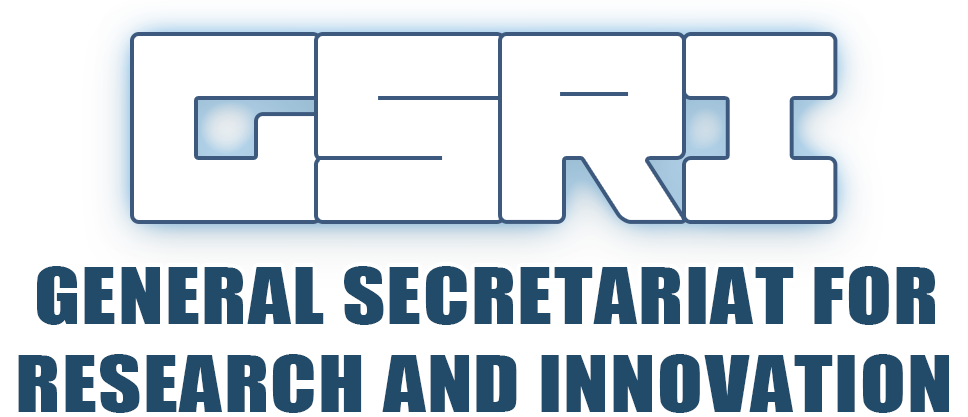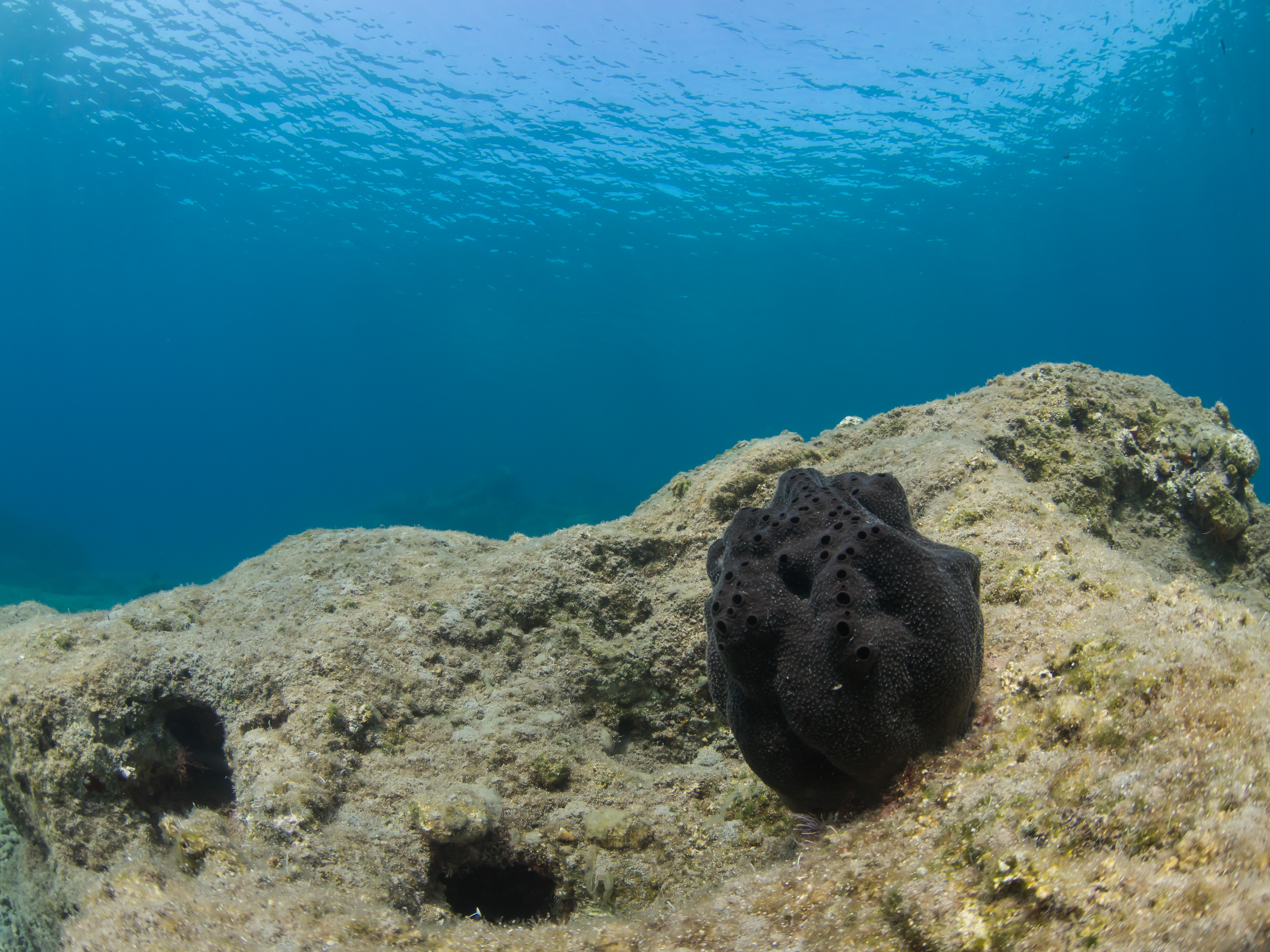 Fish aquaculture is a thriving economic sector in Greece, which is expected to double its size until 2030 by occupying a substantial part of the country’s extended coastline. Aquaculture-related pressures to the natural coastal habitats have been acknowledged and investigated, but few actions have been proposed towards their mitigation, apart from the enforcement of restrictive regulations. Sponges emerge as ideal candidates for integrated aquaculture in fish farms, since they harbour high biotechnological potential apart from their remediation capacity.
Fish aquaculture is a thriving economic sector in Greece, which is expected to double its size until 2030 by occupying a substantial part of the country’s extended coastline. Aquaculture-related pressures to the natural coastal habitats have been acknowledged and investigated, but few actions have been proposed towards their mitigation, apart from the enforcement of restrictive regulations. Sponges emerge as ideal candidates for integrated aquaculture in fish farms, since they harbour high biotechnological potential apart from their remediation capacity. Fish aquaculture is a major contributor to blue growth worldwide, yet induces a series of pressures to the coastal marine environment. Living sponges are ideal candidates to mitigate organic pollution, owing to their innate capacity for active seawater filtering.
SPINAQUA (“Sponges in integrated aquaculture systems: Towards the delivery of better seawater quality and marine products of high added-value”) is a multidisciplinary research project investigating the potential of sponge cultivation in proximity to fish aquaculture for bioremediation and bioproduction purposes. To this end, it adopts an integrated approach comprising: (a) an extended survey of existing sponge habitats, (b) the setup of an experimental open-sea cultivation of selected sponges, as well as (c) the evaluation of their biotechnological potential in the laboratory. Through the adoption of state-of-the-art research methodologies, it aspires to provide a sound baseline to support the development of future bioremediation applications in an efficient, productive and environmentally sustainable manner. In the long run, it will help deliver a competitive advantage to Greek aquaculture enterprises and “cleaner” seas to the people.
6th European Conference on Scientific Diving
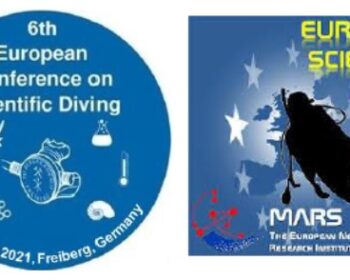
SPINAQUA diver E. Vernadou participated in the 6th European Conference on Scientific Diving organized by TU Bergakademie Freiberg, which was held in Freiberg (Germany) on 21 & 22 April 2021. In this assembly, Mrs. Vernadou had the opportunity to present online the first outcomes on “Contrasting sponge assemblages between distinct…
Large-scale bioremediation experiments
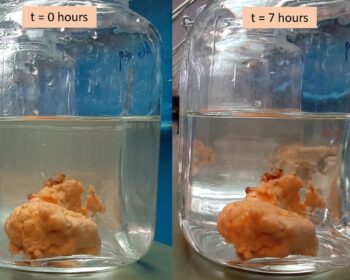
The SPINAQUA team performed a series of controlled, large-scale laboratory experiments at the Aqualabs facilities of IMBBC-HCMR (Crete), in order to assess the cleanup capacity of four sponge species against microalgae. Specific microalgae were selected as a model for the biological pollution typically encountered in fish aquaculture settings. Sponge fragments…
This project has received funding from the Hellenic Foundation for Research and Innovation (HFRI) and the General Secretariat for Research and Technology (GSRT), under the “1st Call for H.F.R.I. Research Projects for the support of Post-doctoral Researchers – The project was submitted in the field of Natural Sciences (Project ID: 239)

